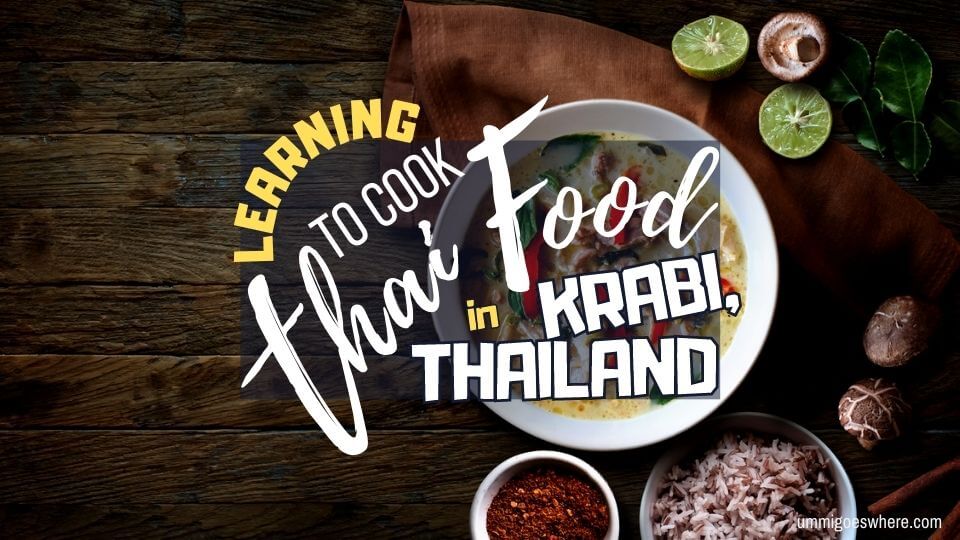Eating Crocodile Meat in Thailand - Benefits, Risks & More
Despite the reputation that Asians will eat just about anything, I don’t think we Malaysians are all that adventurous when it comes to food. And this is coming from someone who grew up in a country obsessed with eating.
Thailand is literally next door to us, yet when I first saw crocodile meat being sold there, I was genuinely taken aback. I’ve never once seen crocodile meat on sale in Malaysia. Not at markets, roadside stalls, or even as a novelty dish.
In Thailand though, it turns out that crocodile meat isn’t that unusual at all. And as I later learned, Thailand isn’t alone — it’s also eaten in the southern United States, Central America, parts of Africa, and Australia.

People have been consuming crocodile meat for a long time due to its health benefits. It has even been dubbed a superfood.
But of course, as with most “exotic” foods, the story doesn’t end there. Alongside the benefits come a few things worth thinking about before you take that first bite.
Health benefits of eating crocodile meat
- Helps in weight loss – Crocodile meat is said to have more lean muscle tissue and much higher content of lower saturated fat than even the leanest cut of beef. Therefore, if you’re on a diet, crocodile meat is a good substitute for beef, lamb, and pork.
A single serving of 100g of crocodile meat contains 4 grams of total fat and zero saturated fat. The same serving of lean beef contains around 14 grams of total fat and close to 6 grams of saturated fat.
– U.S. Department of Agriculture
- Prevents heart disease – Crocodile meat contains protein, amino acid, omega-3 fatty acids, and potassium that can help improve heart function and prevent heart problems.
- Maintains low cholesterol level – In comparison with other meats, crocodile meat contains a significantly lower level of cholesterol.
- Reduces the risk of diabetes – The protein and amino acid contained in crocodile meat can help protect internal organs including the pancreas, which is responsible for producing insulin and controlling blood sugar levels.
- Enhances nervous system – Crocodile meat contains magnesium — a mineral that is beneficial for enhancing the performance of neurotransmitters and preventing neural disorders such as Alzheimer.
- Heals cirrhosis – Cirrhosis is a chronic disease of the liver. When combined with other herbal medicines, crocodile meat is able to aid the healing process of the damaged liver cells, due to its high content of protein and amino acid.

- Helps build muscles – Crocodile meat contains a high level of protein, which is essential for muscle building and repair. It is higher than that found in chicken.
A 100g serving of stewed crocodile meat contains 46g of protein, while a similar portion of stewed, boneless chicken contains only 25g.
- Keeps bones strong – Crocodile meat also contains a higher level of calcium than beef and can help prevent loss of bone mass.
- Cures asthma – Most reptile meats are said to have a ‘heaty’ characteristic, which warms up the body and is beneficial for asthma sufferers. In Chinese medicine, crocodile meat is mixed with herbs such as ginseng to cure asthma and other respiratory problems.
- Prevents anemia – Anemia is the deficiency of red blood cells or hemoglobin, which is commonly caused by a lack of iron in the body. The iron contained in crocodile meat can help prevent this.
- Cures skin problems – This is probably the most popular benefit of crocodile meat. Asians believe that it can help cure eczema, allergies, and other skin diseases.
- Delays aging – Due to its high level of protein, crocodile meat is believed to be able to delay the onset of aging and skin wrinkles, which is why it is the meat of choice for older people in China.
Potential risks of eating crocodile meat
All that being said, just like any meat, it must be sourced and cooked properly. Undercooked or improperly handled meat carries the usual risks of bacterial contamination, including E.coli and Salmonella (which can also be found in raw chicken meat).
And, while farmed crocodile meat is generally safe in Thailand, wild-caught crocodile could carry parasites or other health risks. However, the data about risks to public health is still inconclusive.
There’s also the ethical and environmental angle. Not all crocodile meat is farmed sustainably. Some comes from farms where animals are raised in poor conditions, and there are concerns about illegal hunting in some areas. It’s worth asking your vendor or restaurant about sourcing if you care about conservation or animal welfare.
Where and how to try crocodile meat in Thailand
Crocodile meat is surprisingly accessible if you know where to look. It appears in:
Street stalls: Grilled skewers or fried bites, often in tourist areas
Specialty restaurants: Sometimes served as steaks, curries, or in spicy salads
Markets: Fresh crocodile meat or pre-cooked products in regional markets
Prices vary depending on the cut and preparation, but it’s generally in the mid-range for street food or casual restaurants.
Unlike “shark fin soup” or other controversial exotic dishes, crocodile meat is legally farmed in Thailand and widely available, so it’s not considered rare or taboo.
My experience eating crocodile meat in Thailand
Thailand’s crocodile farms are among the largest in the world. According to the Thai Department of Fisheries, around 1.2 million crocodiles are kept across more than 1,000 farms nationwide.
One kilogram of crocodile meat can fetch up to THB 300, while other parts of the animal are far more lucrative. Crocodile bile and blood (sold for medicinal purposes) are reportedly worth THB 40,000 and THB 500 per kilogram, respectively.

During my visit to Bangkok, I went to Asiatique to witness the Loy Krathong celebration. The festival is celebrated all over the country, but in Bangkok, Asiatique is the place to be if you don’t want to miss the action. And true enough, the crowd was humongous.
That was probably why I didn’t notice the restaurant at first, although I had walked past it several times. It was only towards the end of the night, when the crowd had thinned, that I spotted this scene:
Judging from its size, the crocodile was probably still a baby. It was an appalling sight, yet strangely intriguing at the same time. Almost immediately, the voices in my head started squabbling. Should I try it… or absolutely not?
In the end, I let my curiosity win. I paid 300 baht for a plate of grilled crocodile, which was quite expensive by Thai street food standards.
The meat looked innocuous, just pale chunks lightly charred on the edges. It was served with a spicy dipping sauce and some lettuce on the side.

As usual, the first bite took the most courage. I’ve always been squeamish about reptiles, especially lizards. Although not in the same family scientifically, crocodiles look just like giant lizards to me.

The verdict
What does crocodile meat taste like?
I have to say it actually wasn’t bad at all! There was no weird smell or unpleasant texture. It tasted just like grilled chicken, maybe slightly chewier. In fact, I’d go as far as to say it’s the perfect kind of meat for a barbecue.
The only problem was that I’d just had a heavy dinner earlier, so unfortunately I couldn’t finish the entire plate of crocodile.

Would I eat it again?
Probably not. It’s more of a novelty for me.
But if you’re the kind of traveler who likes to try the unusual, it’s definitely worth a taste. Who knows, you might discover your new favorite meat. And, at the very least, you’ll have a story to tell that beats yet another plate of chicken wings.
What was the weirdest / grossest / quirkiest food you have ever tried in your life? Leave your comments below.
You may also like:




This demand is part of the reason for the current crocodile farming craze in Africa, where 85% of crocodile exports go to China, Hong Kong, and Taiwan combined. Last year, African countries exported some $196 million worth of crocodile to China. “There is nothing Guangdong people wouldn’t eat in the sky, besides planes, and on the ground, cars,” is a popular Guangdong idiom describing the local craze for exotic meats. That includes the masked palm civet, a popular wild meat that was linked to the 2003 SARS outbreak .
Pingback: Eating Bugs in Thailand – What A Scorpion Tastes Like | Ummi Goes Where?
Pingback: What Animal Eats Crocodiles? – gordyfish.com